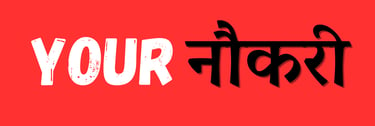A Day Before Interview
6/16/20253 min read
The Final Countdown: Mastering the Day Before Your Interview
The day before an interview can feel like a strange blend of anticipation and anxiety. You've likely put in the hours researching, practicing, and refining your resume. Now, it's time for the final, crucial preparations that can make all the difference. This isn't a day for cramming new information, but rather for solidifying your confidence and ensuring a smooth, stress-free interview experience.
Here’s tips for making the most of the 24 hours before you walk into that interview room:
1. The Logistics Lockdown: Eliminate Surprises
✔ Confirm the Details (Again!)
Recheck the interview date, time, and location. For in-person interviews, look up the exact address, parking, and alternate routes. For virtual meetings, confirm the platform and ensure the link works. Double-checking avoids embarrassing delays and lets you focus calmly on presenting your best self.
✔ Plan Your Outfit
Choose your outfit a day in advance to avoid morning stress. Ensure it’s professional, clean, wrinkle-free, and comfortable. This preparation saves time, builds confidence, and prevents last-minute panic. Your appearance sets the tone, so dressing appropriately communicates respect and seriousness toward the role and organization.
✔ Prepare Your Bag/Workspace
For in-person interviews, pack a folder with extra resumes, a pen, and a notepad. For virtual interviews, organize your workspace neatly, keep water nearby, and reduce distractions. A tidy, prepared setup reflects professionalism and allows you to focus entirely on the conversation instead of scrambling for essentials.
✔ Set Multiple Alarms
Avoid the nightmare of oversleeping by setting at least two or three alarms. One for waking up, one as a reminder to leave or log in, and a backup. This precaution ensures you’re punctual, reduces stress, and shows the interviewer you’re reliable and respect their time.
2. The Mental Recharge: Beyond the Books
✔ Review, Don’t Cram
Instead of memorizing new material, review your key notes and examples. Go over your motivations, strengths, and career highlights. Rehearse answers using the STAR method and revisit prepared questions. Light review boosts confidence and clarity, while cramming only increases anxiety and risks creating confusion during the interview.
✔ Practice Your Opening and Closing
First and last impressions matter. Practice a confident self-introduction highlighting your skills and interest in the role. Plan how you’ll close the interview with gratitude and enthusiasm. A polished opening sets a strong tone, and a thoughtful closing reinforces your suitability and leaves a lasting impact.
✔ Visualize Success
Spend time imagining yourself performing well in the interview—answering questions with ease, building rapport, and leaving a positive impression. Visualization boosts self-confidence, reduces nerves, and prepares your mind for success. By picturing the outcome, you condition yourself to act with poise and assurance when the real moment arrives.
✔ Prioritize Rest
Sleep is your most valuable preparation tool. Aim for 7–9 hours of rest to ensure alertness, focus, and energy. Avoid caffeine or screens late at night. A well-rested mind processes questions more effectively, demonstrates clarity in thought, and helps you remain calm under pressure throughout the interview.
✔ Relax and De-Stress
Engage in light, relaxing activities such as walking, reading, or listening to music. Spend time with loved ones to ease tension. Avoid stress-inducing tasks or intense preparations. A calm mindset improves emotional balance, helping you approach the interview with positivity, resilience, and a composed demeanor.
3. The Digital Detox: Protect Your Focus
✔ Minimize Social Media
Stay off distracting social media feeds before your interview. Checking updates can lead to stress or wasted time. Instead, glance briefly at credible company updates if needed. Use your energy to stay centered, focused, and mentally present for the upcoming conversation rather than scrolling through distractions.
✔ Charge All Devices
Ensure your laptop, tablet, and phone are fully charged the night before. For virtual interviews, test your internet and camera. For in-person, keep your phone ready for navigation or emergencies. Technical glitches or dead batteries can create avoidable stress, while preparedness guarantees smooth communication and punctuality.
4. What NOT to Do: Avoid Common Pitfalls
✔ Don’t Learn Anything New
Avoid starting a new topic or skill at the last minute—it will only confuse or overwhelm you. Stick to reviewing what you already know. Interviews test clarity and confidence, not crammed facts. Trust your preparation, and focus on expressing your existing strengths clearly and convincingly.
✔ Don’t Over-Practice
Over-rehearsing can make your answers sound robotic and unnatural. Instead, lightly review key points and practice flexibility in responses. Interviews are conversations, not performances. Being authentic, adaptable, and engaging is far more effective than sounding overly rehearsed or memorized. Leave room for spontaneity and connection.
✔ Don’t Procrastinate
Avoid last-minute packing or organizing. Complete all preparations early in the day, so you can spend the evening relaxing and recharging. Procrastination fuels stress and increases the chance of forgetting essentials. Preparing ahead ensures peace of mind, allowing you to focus on presenting confidently and professionally.
✔ Don’t Panic
Nervousness is normal, but don’t let it control you. Use breathing exercises, visualization, or light activity to stay composed. Panic clouds judgment and weakens delivery, while calmness enhances confidence. Trust your preparation and remember—interviewers want you to succeed. Staying balanced helps you present your best self.
© 2025. All rights reserved.


